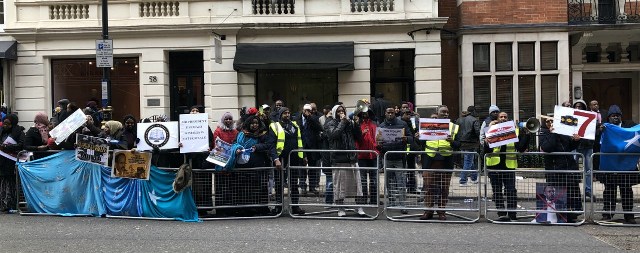
The launch of a Somalian offshore licensing round at a London roadshow in February did much to showcase both the geological potential of the acreage on offer and the efforts being made by the fragile state’s government to lure foreign investors who have been absent for decades. But oil companies will be wary of making substantial investments in a country that, until recently, was a by-word for political instability. The authorities will also need to convince them that production-sharing agreements (PSAs) on offer will be legally binding.
Seismic survey firm Spectrum, which organised the roadshow in conjunction with the Somali government, is promoting 15 newly offered blocks in both shallow and deep water. Following the launch of the tender protocol on 7 February, the stated deadline for applications is 11 July, with the outcome of bidding process to be decided by 7 November. PSAs would then be signed by December 2019.
The blocks were carved out of the Somali offshore on the basis of 20,000km of 2D seismic data Spectrum obtained in 2016 and a further 20,000km acquired by Russian-backed UK independent Soma Oil and Gas in 2014-15. According to Spectrum, all three of the country’s offshore basins-Obbia in the north, Coriole off central Somalia and Jabu-Lamu Basin in the south-have oil potential in their early cretaceous deposits. Jabu-Lamu’s older late Jurassic rocks also offer gas and condensate potential. Spectrum stressed the latter basin’s similarity to the geology of Mozambique’s Rovuma Basin, eager to draw parallels with a region that has yielded large gas finds.
The company estimates the areas combined could be home to 30bn barrels of unrisked resources. Before 1991, when the Somali state collapsed into violent unrest, international oil companies (IOCs) were aware of the country’s potentially interesting offshore. They drilled more than 60 wells, albeit without a major discovery-Spectrum puts that down to poor data and inaccurate geological modelling.
The data is now more detailed and Somalia’s political situation more stable than it has been over the last quarter of a century. But investors will still need some convincing to plough money into what was, until recently, regarded as a failed state, even if drilling offshore offers some insulation from onshore risks.
With that in mind, the Somali government is at pains to ensure that the licensing round is seen as being both transparent and highly competitive compared to those on offer elsewhere in Africa. Pedro Van Meurs, a consultant advising on the round, told the meeting the government take is around 54-66pc-intended to be well below those on offer in Mozambique, Tanzania and Kenya. Signature bonuses are set at $2mn for most blocks. Royalties are based on sliding scales, on a percentage adjusted by daily production, plus a percentage based on price. There is no carried interest for a state oil company.





